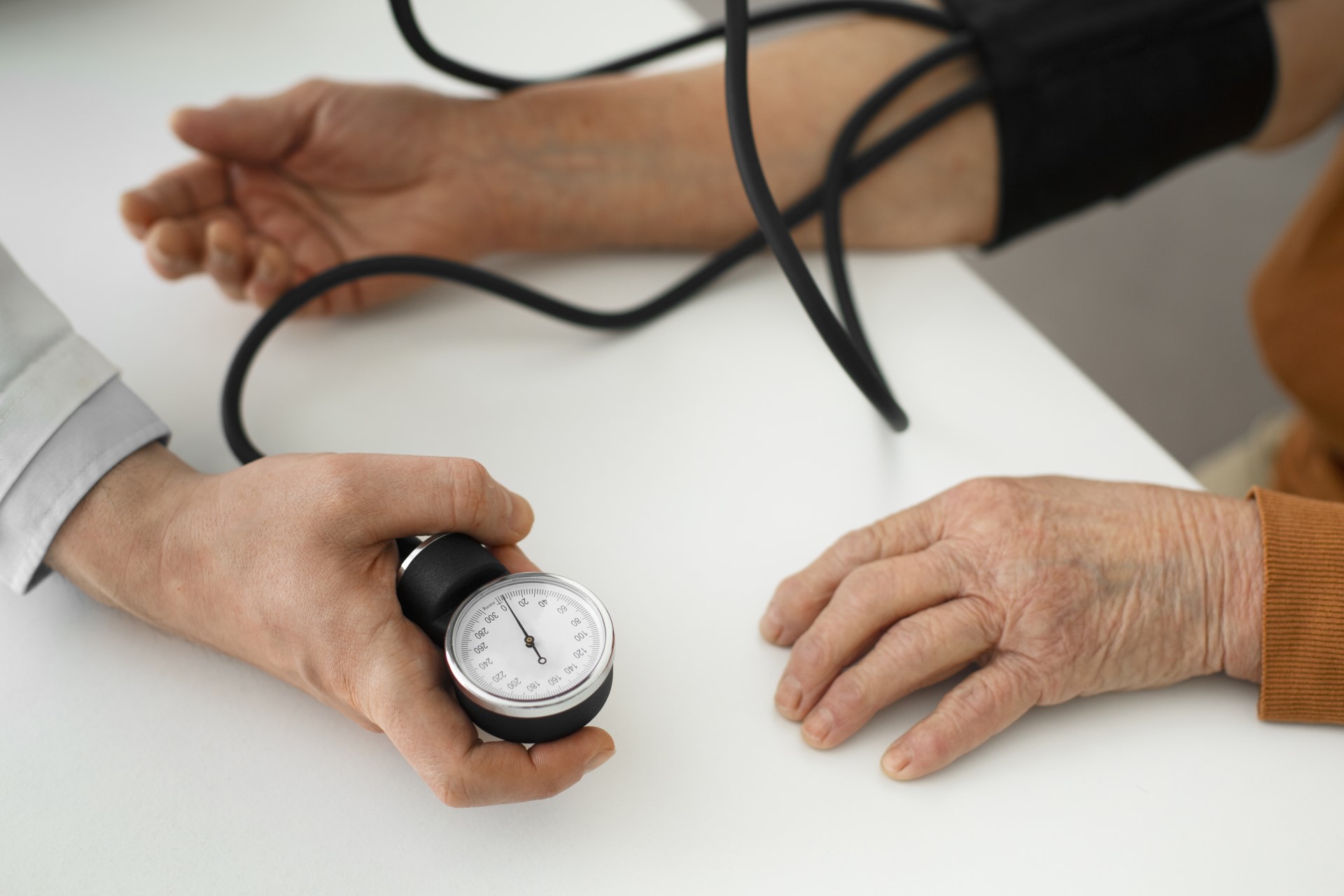What is Diabetes
What is diabetes? And What Are Its Symptoms, Causes, Treatment: Diabetes is a condition that affects how your body processes glucose (sugar) in your blood. Typically, after we eat, the food is broken down into glucose, which helps produce energy for our body. In response to rising blood sugar levels, the pancreas releases insulin, a hormone that allows cells to absorb and use glucose for energy.
However, in diabetes, there’s an issue with insulin production or its effectiveness. There are mainly two types of diabetes:
- Type 1 Diabetes: In this type, the body’s immune system attacks and destroys the insulin-producing beta cells in the pancreas. As a result, very little or no insulin is produced, and the person needs to take insulin injections to survive.
- Type 2 Diabetes: This is more common and occurs when the body doesn’t produce enough insulin or the cells become resistant to the insulin’s effects. It is often associated with lifestyle factors like obesity, sedentary lifestyle, and poor dietary habits.
In both types of diabetes, glucose builds up in the bloodstream, leading to high blood sugar levels. This condition, if not managed well, can cause various complications like cardiovascular disease, kidney problems, nerve damage, and eye issues.
Managing diabetes involves maintaining a healthy lifestyle, including a balanced diet, regular physical activity, and proper medication (in the case of type 1 diabetes or when prescribed for type 2 diabetes). Regular monitoring of blood sugar levels is crucial for effective management and preventing complications. If you suspect you have diabetes or experience symptoms like increased thirst, frequent urination, unexplained weight loss, or fatigue, it’s essential to consult a healthcare professional for proper evaluation and treatment.
Symptoms of Diabetes
- Frequent Urination: People with diabetes often urinate more frequently than usual, especially at night (nycturia).
- Excessive Thirst: Increased urination can lead to dehydration, causing intense thirst.
- Unexplained Weight Loss: Despite eating well, unexplained weight loss can occur in some individuals with diabetes.
- Increased Hunger: Some people may experience constant hunger, even after eating.
- Fatigue: Feeling tired or fatigued is a common symptom of diabetes.
- Blurred Vision: High blood sugar levels can cause temporary changes in the lens of the eye, leading to blurred vision.
- Slow Healing of Wounds: Wounds, cuts, or sores may take longer to heal in individuals with diabetes.
- Frequent Infections: Diabetes can weaken the immune system, making individuals more susceptible to infections, especially in the skin, gums, or urinary tract.
- Tingling or Numbness: Diabetes can cause nerve damage, leading to tingling or numbness in the hands and feet.
- Dry Skin: Skin may become dry and itchy due to changes in circulation and nerve damage.
- Frequent Yeast Infections: Yeast infections in both men and women may occur more frequently.
Causes of Diabetes
Too much glucose circulating in your bloodstream causes diabetes, regardless of the type. However, the reason why your blood glucose levels are high differs depending on the type of diabetes.
Causes of diabetes include:
Insulin resistance: Type 2 diabetes mainly results from insulin resistance. Insulin resistance happens when cells in your muscles, fat and liver don’t respond as they should to insulin. Several factors and conditions contribute to varying degrees of insulin resistance, including obesity, lack of physical activity, diet, hormonal imbalances, genetics and certain medications.
Autoimmune disease: Type 1 diabetes and LADA happen when your immune system attacks the insulin-producing cells in your pancreas.
Hormonal imbalances: During pregnancy, the placenta releases hormones that cause insulin resistance. You may develop gestational diabetes if your pancreas can’t produce enough insulin to overcome the insulin resistance. Other hormone-related conditions like acromegaly and Cushing syndrome can also cause Type 2 diabetes.
Pancreatic damage: Physical damage to your pancreas — from a condition, surgery or injury — can impact its ability to make insulin, resulting in Type 3c diabetes.
Genetic mutations: Certain genetic mutations can cause MODY and neonatal diabetes.
Treatment For Diabetes
The treatment for diabetes depends on the type of diabetes and individual factors. Here are the general treatment approaches for the two main types of diabetes:
- Type 1 Diabetes: Type 1 diabetes is an autoimmune condition where the body does not produce insulin. Treatment typically involves:
- Insulin therapy: Regular insulin injections or using an insulin pump to deliver insulin throughout the day.
- Blood sugar monitoring: Regularly checking blood sugar levels to adjust insulin doses accordingly.
- Healthy diet: A balanced diet that manages carbohydrate intake to control blood sugar levels.
- Regular exercise: Physical activity helps improve insulin sensitivity and overall health.
- Type 2 Diabetes: Type 2 diabetes usually develops due to insulin resistance or the body’s inability to use insulin effectively. Treatment may include:
- Lifestyle changes: Adopting a healthy diet and engaging in regular physical activity to control weight and improve insulin sensitivity.
- Oral medications: Various oral medications can help lower blood sugar levels by increasing insulin production or reducing glucose production in the liver.
- Injectables: In some cases, injectable medications like GLP-1 receptor agonists or SGLT2 inhibitors may be prescribed to lower blood sugar levels and promote weight loss.
- Insulin therapy: If other treatments are not sufficient, insulin injections might be used to manage blood sugar levels.
Reach Brookefield hospital in Bangalore and get treatment for diabetes!
Diabetes is a common problem and it is important to reach out the doctor Timely. If you are in Bangalore and looking out for the hospital where you can go then visit Multispeciality Hospital in Bangalore now. This is one of the best diabetes Hospital in Bangalore you can reach out for treatment. You can simply reach here and fix and appointment with the doctor and he will suggest you what to do and what not to do.
He will also help you to know about the precautions you need to take to manage things in an appropriate way. After following the recommendation doctors are giving you will be able to deal with the problem. It is advisable to not avoid the situation because diabetes can lead to some other health related issues as well!
FAQ
What is diabetes?
Diabetes is a chronic medical condition that occurs when the body is unable to regulate blood sugar levels properly. This happens either because the pancreas does not produce enough insulin (Type 1 diabetes) or because the body’s cells do not respond adequately to insulin (Type 2 diabetes). Insulin is a hormone that helps move sugar (glucose) from the bloodstream into cells, where it is used for energy.
What are the symptoms of diabetes?
The common symptoms of diabetes include:
- Frequent urination: Increased need to urinate, especially at night (polyuria).
- Excessive thirst: Feeling very thirsty all the time (polydipsia).
- Unexplained weight loss: Losing weight without trying.
- Increased hunger: Feeling hungry more often, even after eating (polyphagia).
- Fatigue: Feeling tired and lacking energy.
- Blurred vision: Vision may become blurry due to changes in the lens of the eye.
- Slow-healing wounds: Cuts and bruises take longer to heal.
- Tingling or numbness: Particularly in the hands or feet.
What causes diabetes?
The causes of diabetes vary depending on the type:
- Type 1 diabetes: It is believed to be an autoimmune condition where the body’s immune system mistakenly attacks and destroys insulin-producing cells in the pancreas. The exact cause is not known, but genetic and environmental factors may play a role.
- Type 2 diabetes: This type is largely influenced by lifestyle factors, such as unhealthy eating habits, sedentary lifestyle, obesity, and genetic predisposition. It occurs when the body becomes resistant to insulin, and the pancreas cannot keep up with the increased demand for insulin production.
What are the risk factors for developing diabetes?
The risk factors for diabetes include:
- Type 1 diabetes: Family history of the condition, certain genetic factors, and environmental triggers are potential risk factors.
- Type 2 diabetes: Being overweight or obese, a sedentary lifestyle, family history of diabetes, age (risk increases with age), high blood pressure, and a history of gestational diabetes are some of the risk factors.
How is diabetes diagnosed?
Diabetes is typically diagnosed through the following tests:
- Fasting Blood Sugar Test: Measures blood glucose after fasting for at least eight hours.
- HbA1c Test: Provides an average of blood sugar levels over the past few months.
- Oral Glucose Tolerance Test (OGTT): Measures blood sugar levels before and after consuming a sugary drink.
What are the complications of diabetes?
Untreated or poorly managed diabetes can lead to various complications over time, including:
- Cardiovascular problems: Increased risk of heart disease, stroke, and high blood pressure.
- Nerve damage: Peripheral neuropathy, causing tingling, numbness, and pain in the extremities.
- Kidney damage: Diabetic nephropathy, which can lead to kidney failure.
- Eye problems: Diabetic retinopathy, which may lead to vision loss or blindness.
- Foot complications: Poor blood flow and nerve damage can lead to foot ulcers and infections, potentially leading to amputation.
What is the treatment for diabetes?
The treatment for diabetes depends on the type and severity of the condition:
- Type 1 diabetes: Requires insulin therapy, either through injections or an insulin pump, to regulate blood sugar levels. Patients also need to manage their diet and exercise regularly.
- Type 2 diabetes: Initially managed with lifestyle changes like adopting a healthy diet and increasing physical activity. If these measures are insufficient, oral medications or insulin injections may be prescribed.
- Other treatments: In addition to medication and lifestyle changes, regular monitoring of blood sugar levels, weight management, and maintaining a healthy lifestyle are essential.





